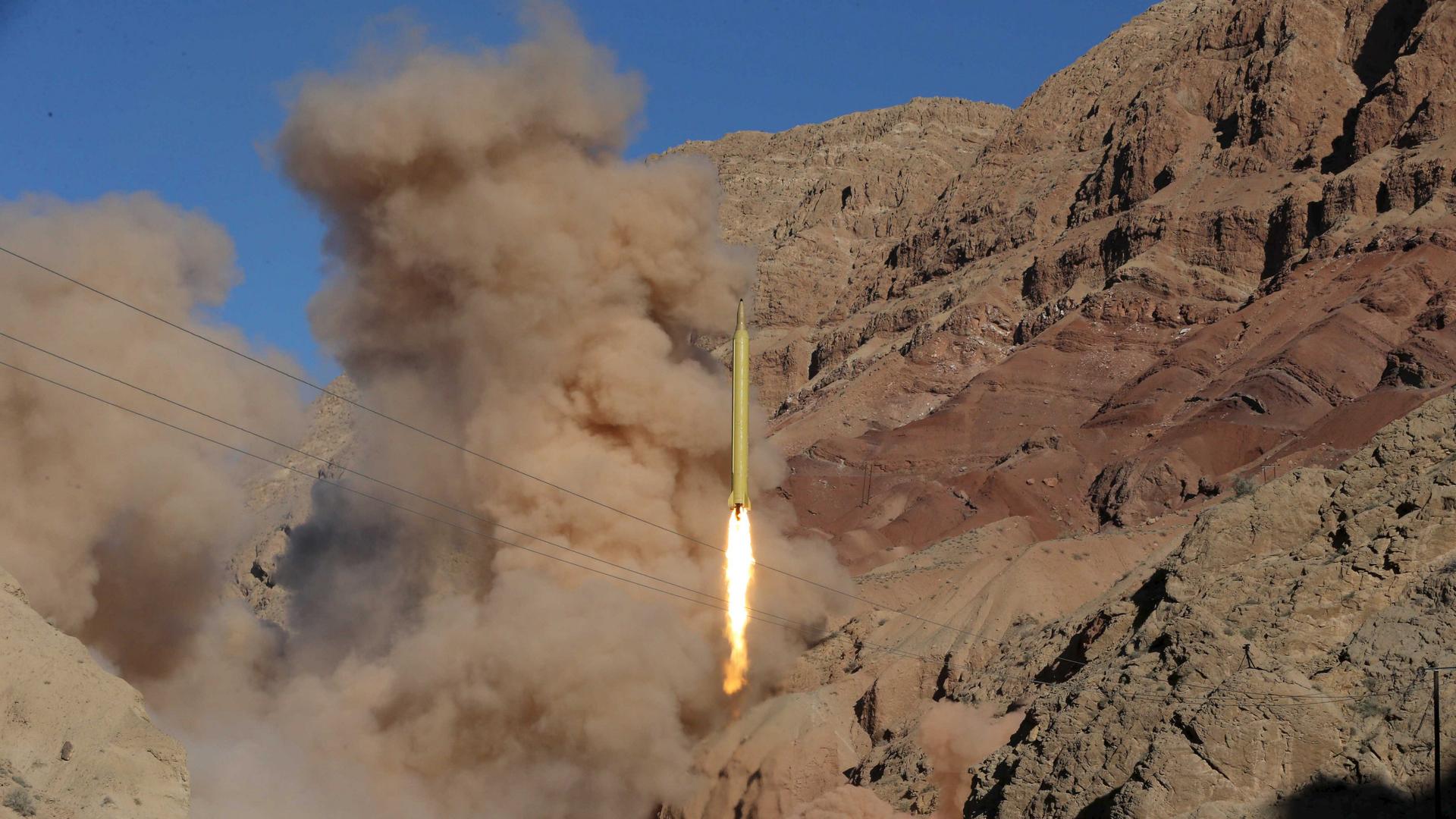Iran’s dramatic missile tests were ‘signals.’ Here’s what they meant.
One of the ballistic missiles being launched and tested in an undisclosed location, Iran
Over two days, Iran's military conducted a series of high-profile missile tests, complete with photos and videos — spectacular images of a missile blasting out of the dry mountains of Iran. A former cabinet advisor says the public, dramatic displays were meant to send a few messages.
Aaron David Miller, who advised six secretaries of state before becoming a scholar at the Woodrow Wilson Center in Washington, says the military's tests were clearly meant to send messages to several groups.
"This was calculated," he says. "Willfull and quite dramatic in its purpose and meaning."
This is how Miller breaks down those messages:
"To Iranian President Hassan Rouhani, who benefited clearly from the recent elections: 'Don't misunderstand the nature of Iranian revolutionary ambitions and regional influence.' And 'We will continue, not you, to make our foreign policy and national security policy.'"
"To the Israelis: 'We haven't forgotten about you. The reality is that, propagandistic value or not, we are your enemy. We are your adversary, and we have the capacity to reach you.'"
"To the Americans: 'Don't be fooled, and don't be misled, into believing that somehow the joint comprehensive plan of action in the Iranian nuclear agreement is somehow a pathway to moderation and an improvement in the US-Iranian relationship. We will continue to act in defense of what we consider to be our interest.'"
"To the Saudis: 'We have a major problem with you. We are competing for regional influence and power. We know where you live and we can reach you as well.'"
"And to the Iranian public, who turned out in record numbers in this recent set of elections: 'Understand the nature of the regime. We are nationalists. We are proud of our capacity and our projection of regional influence, and we will continue to defend Iranian interests.'"
The Iranians say the missiles can hit anywhere in Israel or Saudi Arabia. Miller says at least one of the missiles was launched with a warning, written in Hebrew, to the Israelis.
The US is considering its response. But Miller says its options are limited.
“I think the reality is that [the Iran nuclear] agreement is such a pre-eminent part of the Obama administration’s foreign policy legacy," he says. "In a way it is — to use this unfortunate expression — ‘too big to fail.’”
